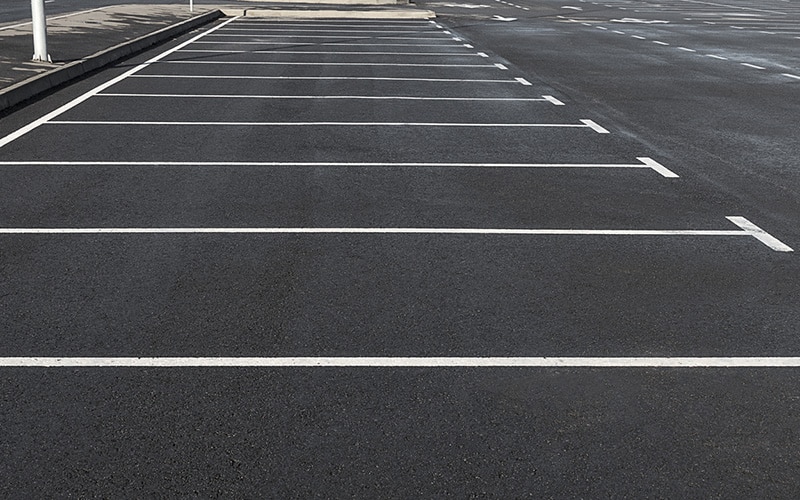Improve Durability with Cold Mix Asphalt: Specialist Sealing Solutions
Improve Durability with Cold Mix Asphalt: Specialist Sealing Solutions
Blog Article
Cold Mix Asphalt Vs. Hot Mix Asphalt: Which Is Right for You?

Structure Distinctions
Cold mix and hot mix asphalts differ significantly in their composition, with distinctive attributes that impact their efficiency and applications. Cold mix asphalt is generated by emulsifying the asphalt binder with water and an emulsifying representative before mixing it with aggregate. This approach enables for the asphalt to be practical at reduced temperatures, making it suitable for short-term repair work and for usage in chillier weather. Warm mix asphalt, on the various other hand, is produced at high temperatures, typically between 300-350 ° F, which assists to attain better compaction and a much more resilient end product. The hot mix asphalt production process entails heating up the aggregate and asphalt binder independently before integrating them at the asphalt plant.
Moreover, cool mix asphalt tends to be less thick and much more adaptable than hot mix asphalt. This adaptability makes it far better matched for areas with greater degrees of activity, such as driveways or roads with rush hour. On the other hand, hot mix asphalt is known for its high resilience and resistance to rutting and breaking, making it a preferred selection for freeways and high-traffic roads where long life is important.
Installment Process Variances
The procedure of mounting chilly mix and hot mix asphalt displays notable variances in their procedures and demands. In comparison, warm mix asphalt requires a much more elaborate installation process. Due to the home heating needs, warm mix asphalt installments are usually carried out by professionals with customized tools, guaranteeing a more irreversible and structurally audio result.
Durability and Longevity Aspects
When taking into consideration asphalt options, resilience and durability are crucial aspects to evaluate for long lasting pavement performance. Hot mix asphalt (HMA) is known for its exceptional resilience and longevity.
In regards to long life, HMA usually outmatches CMA as a result of its remarkable stamina and resistance residential or commercial properties. HMA pavements have a longer solution life, needing less regular fixings and maintenance, which can equate to set you back savings in the long run. In addition, HMA sidewalks are much more easily personalized to satisfy details job needs, additionally improving their resilience.
Expense Factors To Consider
Considering the economic ramifications is a critical facet when assessing the option between hot mix asphalt (HMA) and cool mix asphalt (CMA) for pavement projects. While the initial price of warm mix asphalt is normally higher than that of chilly mix asphalt, HMA frequently gives a more cost-effective option in the lengthy run due to its superior toughness and long life.
Along with material prices, it's important to take into consideration the expenditures linked with installment and maintenance when comparing HMA and CMA. HMA normally calls for specific tools and competent labor for appropriate installment, which can affect overall project expenses. Alternatively, CMA is easier to collaborate with and can typically be applied utilizing easier techniques, potentially lowering installment costs. Inevitably, the decision in between HMA and CMA must take into consideration not simply the initial cost here but also the long-lasting financial effects to figure out one of the most cost-effective choice for the certain pavement task.
Environmental Influence Comparison
Comparison of the ecological influences between hot mix asphalt (HMA) and cold mix asphalt (CMA) discloses distinct distinctions in sustainability practices. HMA manufacturing needs high temperature levels, leading to boosted power intake and greenhouse gas exhausts. The process also releases unpredictable natural compounds (VOCs) and harmful air contaminants (HAPs) into the environment. On the other hand, CMA is created and applied at reduced temperatures, minimizing energy use and exhausts considerably. The lower production temperature levels of CMA result in decreased gas intake and lower degrees of CO2 exhausts, making it a much more environmentally pleasant option.
Moreover, the usage of CMA usually involves reusing existing asphalt pavement, promoting source conservation and minimizing the amount of waste sent out to garbage dumps. This recycling aspect better improves the sustainability of CMA compared to HMA. On the whole, when considering the ecological effect, CMA becomes an extra environmentally lasting choice as a result of its reduced energy needs, reduced exhausts, and the potential for recycling existing materials. By deciding for CMA over HMA, roadway building and construction tasks can add positively to environmental preservation initiatives.
Final Thought
To conclude, the choice in between cool mix asphalt (CMA) and warm mix asphalt (HMA) depends on numerous variables such as composition, installment procedure, resilience, long life, expense, and ecological effect. asphalt patch repair. While CMA supplies a fast and economical service for minor repair work, HMA ensures remarkable resilience and durability for hefty web traffic locations. Think about these elements meticulously to establish which sort of asphalt is the appropriate selection for your paving requires

Taking into consideration the economic implications is an important element when evaluating the selection in between hot mix asphalt (HMA) and chilly mix asphalt (CMA) for sidewalk jobs. While the initial expense of warm More Info mix asphalt is right here normally greater than that of chilly mix asphalt, HMA commonly offers a more cost-efficient option in the long run due to its remarkable toughness and long life. angle parking.Comparison of the ecological effects between warm mix asphalt (HMA) and cold mix asphalt (CMA) reveals distinctive differences in sustainability practices.In conclusion, the selection in between cold mix asphalt (CMA) and warm mix asphalt (HMA) depends on various variables such as structure, installation procedure, toughness, long life, price, and ecological influence
Report this page